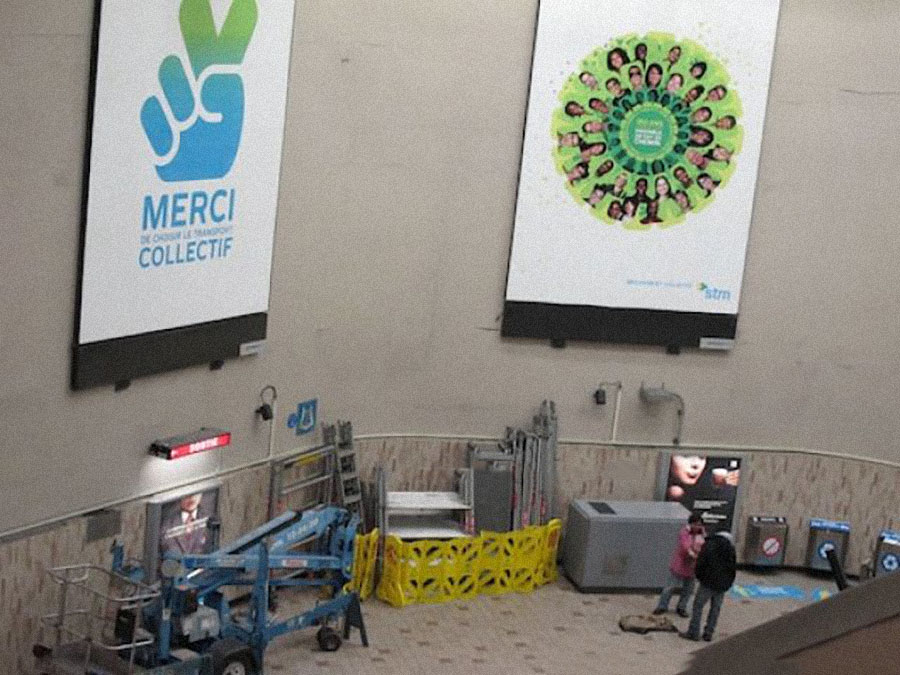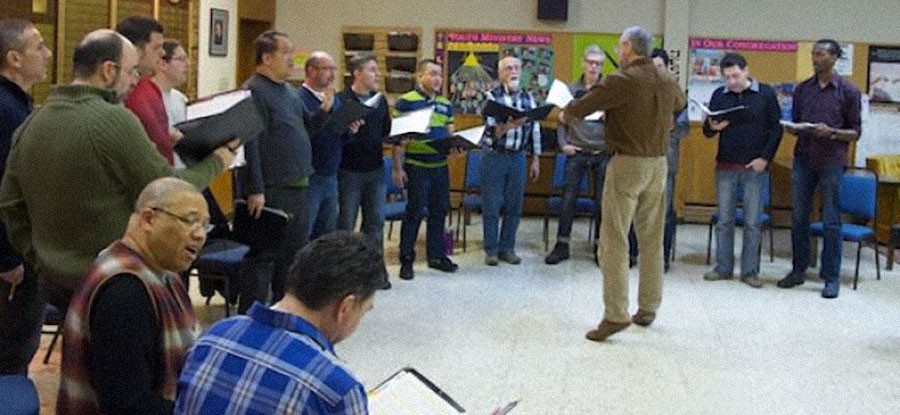
The handicapped artist
January 17, 2012
He is probably one of the oldest subway artists because I have been running into him for a long time now, at random, in several stations. The skin on his face has an indefinable texture, the remnant of virulent juvenile acne or the after-effects of a burn. Nor can I grasp the quality of his mind, let alone judge his condition. At first glance, he is a person handicapped by something or only a poor soul who has built an artistic universe that nourishes him.
In the past, several years ago, he played the flute, which he seems to have abandoned to the profile of a simple stick that he hits on a piece of wood to mark the rhythm. I heard him sing *L’Enfant au tambour* on Christmas Eve, retracting most of the lyrics. Despite the syncopation, the whole had a somewhat contemporary beauty, as if a young composer had wanted to draw the essence of the melody to reveal it to us in a contrapuntally renewed way.
Passers-by have always laughed more at him, or simply smiled at the spectacle they offered him alms. Nor do I remember giving him any money, considering him much more often as an artistic nuisance occupying a precious place in the corridors of the metro.
With time, therefore, this man persists, with his minimalist *a cappella* songs, strange rhythms. His honest energy at the beginning gave way to fatigue. The record seems scratched, repeats melodic flanges. Yet it is still there. He may have collected a fortune, or he hides, behind this mask of lost, his ducharmian spirit, it may be Réjean Ducharme himself.
His insistence alone, it will be said, deserves to be encouraged. Possible. However, I do not hesitate to give to musicians of all styles when I feel the flame of talent in them. I rarely give out of pity. I hate begging, I hate being solicited. It is not self-righteous; I would prefer that society be fairer and that everyone has the resources to achieve their ambitions.
I certainly prefer it to that crazy woman who sings Christian songs with a black-spirited sauce in her voice and who too often haunts the Crémazie metro station. I also prefer it to this other one, obviously destroyed by the passage of men, and which changes horribly wrong in the corridors of Berri-UQAM. At the very least, he keeps the note. He now seems so tired. He’s holding on so tight. And when he dies, we probably won’t know. Perhaps like all of us, by the way.
So little separates us from misery. So few protect us from the solar winds. So small, after all, we are all.
In the past, several years ago, he played the flute, which he seems to have abandoned to the profile of a simple stick that he hits on a piece of wood to mark the rhythm. I heard him sing *L’Enfant au tambour* on Christmas Eve, retracting most of the lyrics. Despite the syncopation, the whole had a somewhat contemporary beauty, as if a young composer had wanted to draw the essence of the melody to reveal it to us in a contrapuntally renewed way.
Passers-by have always laughed more at him, or simply smiled at the spectacle they offered him alms. Nor do I remember giving him any money, considering him much more often as an artistic nuisance occupying a precious place in the corridors of the metro.
With time, therefore, this man persists, with his minimalist *a cappella* songs, strange rhythms. His honest energy at the beginning gave way to fatigue. The record seems scratched, repeats melodic flanges. Yet it is still there. He may have collected a fortune, or he hides, behind this mask of lost, his ducharmian spirit, it may be Réjean Ducharme himself.
His insistence alone, it will be said, deserves to be encouraged. Possible. However, I do not hesitate to give to musicians of all styles when I feel the flame of talent in them. I rarely give out of pity. I hate begging, I hate being solicited. It is not self-righteous; I would prefer that society be fairer and that everyone has the resources to achieve their ambitions.
I certainly prefer it to that crazy woman who sings Christian songs with a black-spirited sauce in her voice and who too often haunts the Crémazie metro station. I also prefer it to this other one, obviously destroyed by the passage of men, and which changes horribly wrong in the corridors of Berri-UQAM. At the very least, he keeps the note. He now seems so tired. He’s holding on so tight. And when he dies, we probably won’t know. Perhaps like all of us, by the way.
So little separates us from misery. So few protect us from the solar winds. So small, after all, we are all.

